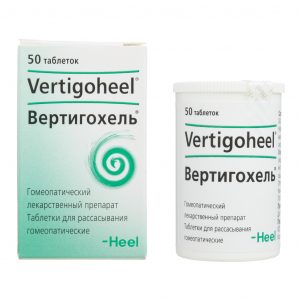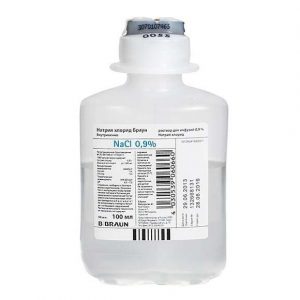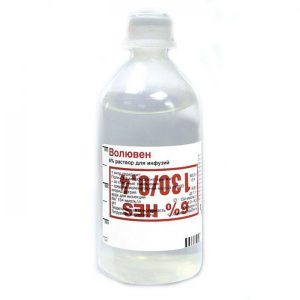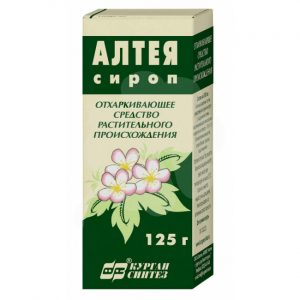Description
Description
For tablets of 20 mg – round, biconvex tablets of white color with a risk on one side.
Packaging
In a blister pack of 10 tablets. In a cardboard bundle 2 blisters.
Pharmacological action of
Enalapril is an antihypertensive drug from the group of ACE inhibitors. Enalapril is a “prodrug”: as a result of its hydrolysis, enalaprilat is formed, which inhibits ACE. The mechanism of its action is associated with a decrease in the formation of angiotensin II from angiotensin I, a decrease in the content of which leads to a direct decrease in the release of aldosterone. This decreases the overall peripheral vascular resistance, systolic and diastolic blood pressure (BP), post- and preload on the myocardium.
Expands arteries to a greater extent than veins, with no reflex increase in heart rate.
The antihypertensive effect is more pronounced with a high level of plasma renin than with a normal or reduced level of it. A decrease in blood pressure within the therapeutic range does not affect cerebral circulation, blood flow in the vessels of the brain is maintained at a sufficient level and against the background of lowered blood pressure. Enhances coronary and renal blood flow.
With prolonged use, hypertrophy of the left ventricle of the myocardium and myocytes of the walls of the arteries of the resistive type, prevents the progression of heart failure and slows down the development of dilatation of the left ventricle. Improves blood supply to the ischemic myocardium.
Reduces platelet aggregation.
Has some diuretic effect.
The time of onset of the hypotensive effect when taken orally is 1 hour, reaches a maximum after 4-6 hours and lasts up to 24 hours. In some patients, therapy for several weeks is necessary to achieve the optimal level of blood pressure. With heart failure, a noticeable clinical effect is observed with prolonged use – 6 months or more.
Indications
Arterial hypertension,
in chronic heart failure (as part of combination therapy).
Contraindications
Hypersensitivity to enalapril and other ACE inhibitors, history of angioedema associated with treatment with ACE inhibitors, porphyria, pregnancy, lactation, age under 18 years (efficacy and safety have not been established).
Use with caution in case of primary hyperaldosteronism, bilateral renal artery stenosis, single kidney artery stenosis, hyperkalemia, condition after kidney transplantation, aortic stenosis, mitral stenosis (with hemodynamic impairment), idiopathic hypertrophic subaortic stenosis of the heart, systemic disease diseases, diabetes renal failure (proteinuria – more than 1 g / day), liver failure, in patients on a salt-limited diet or on hemodialysis, while taking it with immunosuppressants and saluretics, in the elderly (over 65 years).
Use during pregnancy and lactation
Contraindicated in pregnancy and lactation.
Composition
1 tablet 20 mg contains:
Active ingredient: enalapril maleate – 20 mg.
Excipients: lactose monohydrate – 116,400 mg, magnesium carbonate – 120,000 mg, gelatin – 10,700 mg, crospovidone – 10,700 mg, magnesium stearate – 2,200 mg.
Dosage and administration
Assign inside, regardless of the meal time.
With monotherapy for hypertension, the initial dose is 5 mg once a day.
In the absence of a clinical effect, the dose is increased by 5 mg after 1-2 weeks. After taking the initial dose, patients should be under medical supervision for 2 hours and an additional 1 hour until blood pressure stabilizes. If necessary and sufficiently good tolerance, the dose can be increased to 40 mg / day in 2 divided doses. After 2-3 weeks, they switch to a maintenance dose of 10-40 mg / day, divided into 1-2 doses. With moderate arterial hypertension, the average daily dose is about 10 mg.
The maximum daily dose of the drug is 40 mg / day.
In case of prescribing to patients receiving diuretics at the same time, treatment with a diuretic must be stopped 2-3 days before enalapril is prescribed. If this is not possible, then the initial dose of the drug should be 2.5 mg / day.
Patients with hyponatremia (serum sodium ion concentration less than 130 mmol / L) or serum creatinine concentration more than 0.14 mmol / L, the initial dose is 2.5 mg once a day.
In case of renovascular hypertension, the initial dose is 2.5-5 mg / day. The maximum daily dose is 20 mg.
In chronic heart failure, the initial dose is 2.5 mg once, then the dose is increased by 2.5 – 5 mg every 3-4 days in accordance with the clinical response to the maximum tolerated dose depending on blood pressure, but not higher than 40 mg / day once or in 2 divided doses. In patients with low systolic blood pressure (less than 110 mm Hg), therapy should be started with a dose of 1.25 mg / day. Dose selection should be carried out within 2-4 weeks or in a shorter time. The average maintenance dose is 5-20 mg / day. for 1-2 doses.
In older people, a more pronounced hypotensive effect and an increase in the duration of the drug’s action are more often observed, which is associated with a decrease in the excretion rate of enalapril, so the recommended initial dose for the elderly is 1.25 mg.
In chronic renal failure, cumulation occurs with a decrease in filtration of less than 10 ml / min. With creatinine clearance (CC) of 80-30 ml / min, the dose is usually 5-10 mg / day., With CC to 30-10 ml / min – 2.5-5 mg / day., With CC less than 10 ml / min. – 1.25-2.5 mg / day. only on dialysis days.
The duration of treatment depends on the effectiveness of the therapy. With a too pronounced decrease in blood pressure, the dose of the drug is gradually reduced.
The drug is used both in monotherapy and in combination with other antihypertensive drugs.
Side effects
Enalapril is generally well tolerated and in most cases does not cause side effects, requiring withdrawal of the drug.
From the cardiovascular system: excessive decrease in blood pressure, orthostatic collapse, rarely – chest pain, angina pectoris, myocardial infarction (usually associated with a pronounced decrease in blood pressure), extremely rare – arrhythmias (atrial brady or tachycardia, atrial fibrillation), palpitations, thromboembolism of the branches of the pulmonary artery.
From the nervous system: dizziness, headache, weakness, insomnia, anxiety, confusion, increased fatigue, drowsiness (2-3%), very rarely when using high doses – nervousness, depression, paresthesia.
On the part of the sensory organs: disorders of the vestibular apparatus, impaired hearing and vision, tinnitus.
From the digestive tract: dry mouth, anorexia, dyspeptic disorders (nausea, diarrhea or constipation, vomiting, pain in the abdomen), intestinal obstruction, pancreatitis, impaired liver function and bile secretion, hepatitis, jaundice.
From the respiratory system: unproductive dry cough, interstitial pneumonitis, bronchospasm, shortness of breath, rhinorrhea, pharyngitis.
Allergic reactions: skin rash, itching, urticaria, angioedema, extremely rare – dysphonia, polymorphic erythema, exfoliative dermatitis, Steven-Johnson syndrome, toxic epidermal necrolysis, pemphigus, photosensitivity, serositis, vasculitis, myositis, arthritis, arthralitis glossitis.
On the part of laboratory parameters: hypercreatininemia, increased urea, increased activity of “liver” enzymes, hyperbilirubinemia, hyperkalemia, hyponatremia. In some cases, a decrease in hematocrit, an increase in ESR, thrombocytopenia, neutropenia, agranulocytosis (in patients with autoimmune diseases), eosinophilia.
From the urinary system: impaired renal function, proteinuria.
Other: alopecia, decreased libido, hot flashes.
Overdose
Symptoms: a marked decrease in blood pressure up to the development of collapse, myocardial infarction, acute cerebral circulation or thromboembolic complications, convulsions, stupor.
Treatment: the patient is transferred to a horizontal position with a low head. In mild cases, gastric lavage and intake in saline solution are shown, in more severe cases measures aimed at stabilizing blood pressure: intravenous administration of saline solution, plasma substitutes, if necessary – administration of angiotensin II, hemodialysis (the rate of elimination of enalaprilat is min. ).
Storage conditions
Store in a dry place, at a temperature from 15 to 25C.
Keep out of the reach of children.
Expiration
3 years. Do not use after the expiry date.
Active substance
Enalapril
Conditions of supply of
Pharmacy Prescription
Dosage form
Dosage form
tablets




